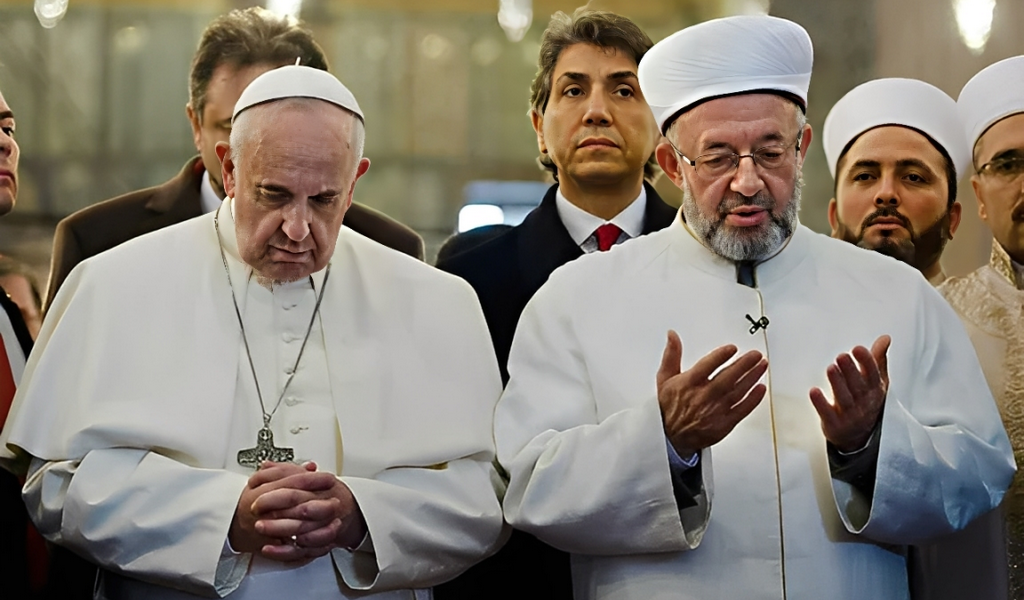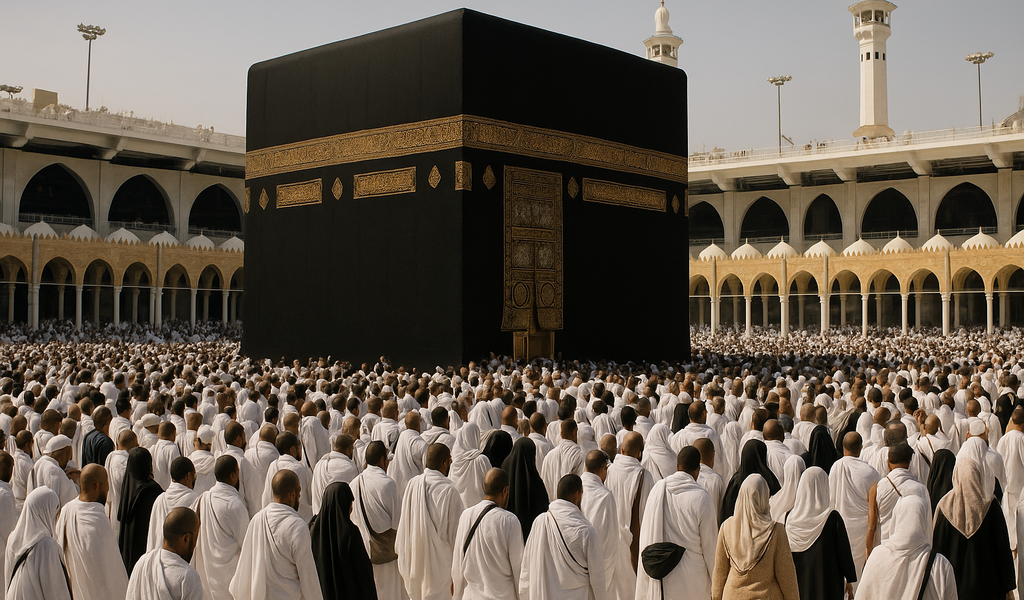Islam
Islam is a major monotheistic world religion that arose in the seventh century CE in the Arabian Peninsula under the preaching of Muhammad ibn ʿAbd Allāh, regarded by Muslims as the final prophet in a succession that includes Abraham, Moses, and Jesus. The Arabic term islām means “submission” — denoting obedience to the one God (Allah), whose will is revealed in the Qur’an, believed by Muslims to be the literal word of God.
The faith centers upon five fundamental practices:
- The confession of faith (shahāda)
- Ritual prayer (ṣalāt)
- Fasting during Ramadan (ṣawm)
- Almsgiving (zakāt)
- Pilgrimage to Mecca (ḥajj)
Islamic theology emphasizes divine unity (tawḥīd), prophecy, and the final judgment. Over the centuries, Islam has developed diverse expressions, chiefly the Sunni and Shia traditions, as well as Sufism, the mystical dimension of Islamic piety.
While Islam shares with Christianity a belief in one God, divine revelation, moral accountability, and reverence for Jesus, it differs fundamentally in denying the Trinity, the Incarnation, and the atoning work of Christ.
From a Christian academic perspective, understanding Islam involves recognizing both its spiritual depth and its theological divergence from the gospel. Such study serves as a foundation for informed dialogue, mutual respect, and faithful witness within the broader context of interreligious engagement.

- Details
- Written by: Mahmoud Abdullah
- Category: Islam
- Hits: 307
The Catholic Church recognizes Islam as a monotheistic faith that honors God, Jesus, and Mary, promoting dialogue and mutual respect according to Nostra Aetate.

- Details
- Written by: Mahmoud Abdullah
- Category: Islam
- Hits: 1122
This article examines the principal types of Islam—most prominently the Sunni and Shia branches, alongside lesser-known currents such as Ibadi Islam, Sufism, and modern reform movements. Through historical, doctrinal, and sociological perspectives, the discussion aims to provide a nuanced overview that helps Christian readers approach Islam not as a uniform tradition but as a complex and evolving religious world.

 DE
DE  RU
RU  UK
UK